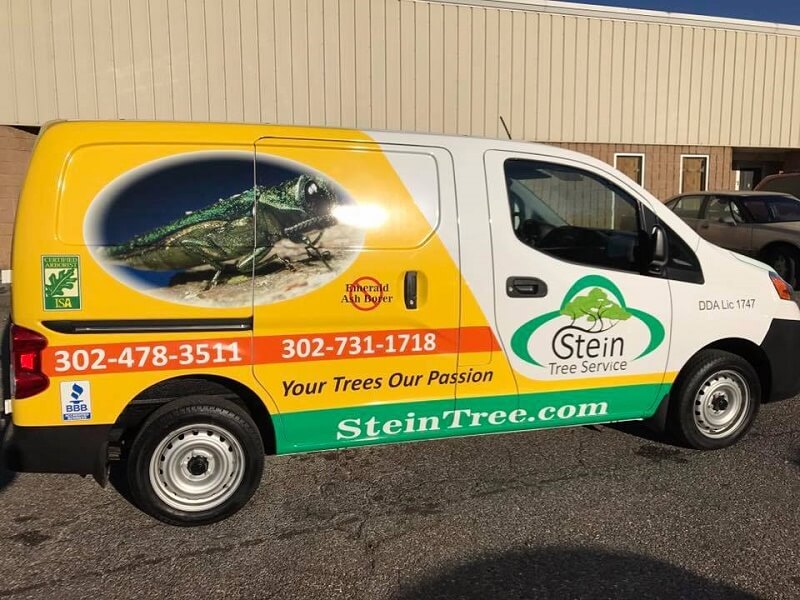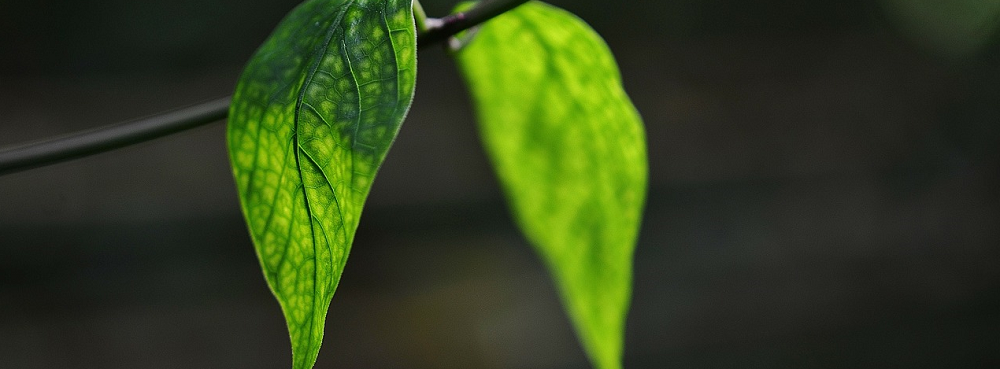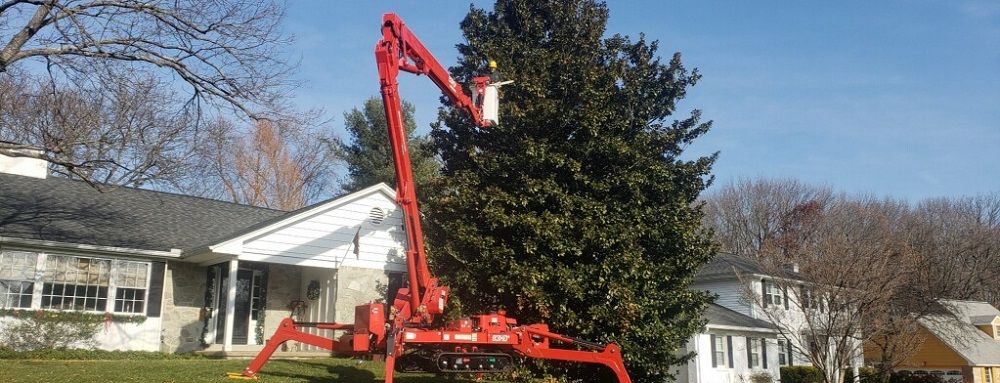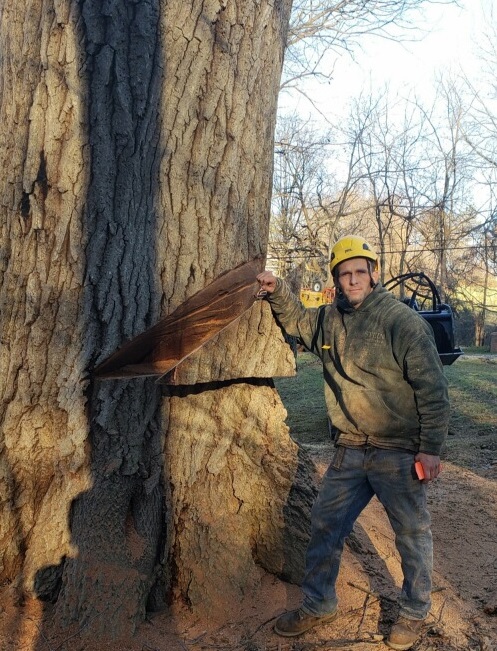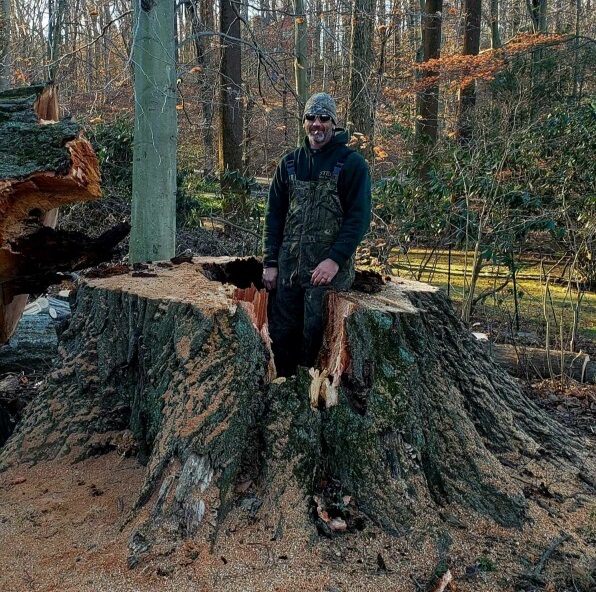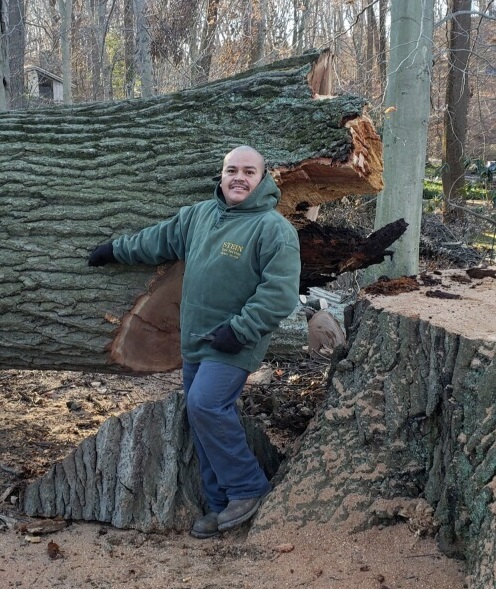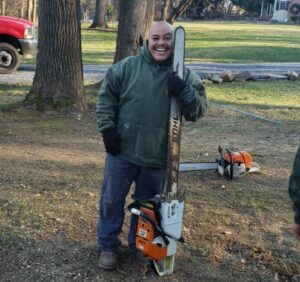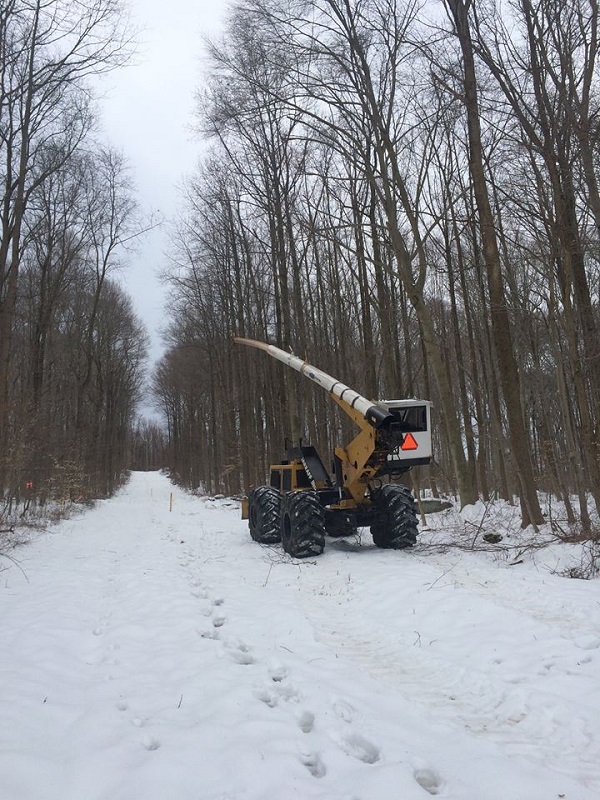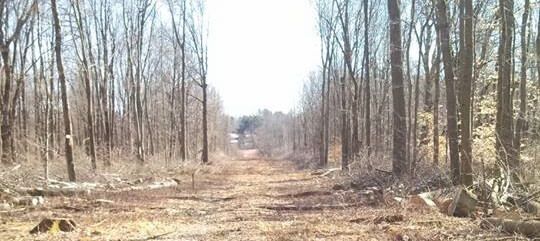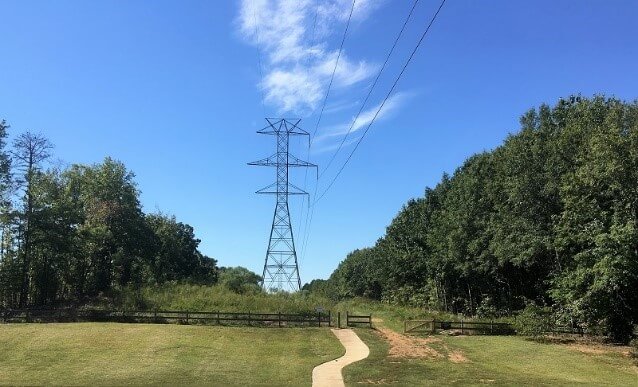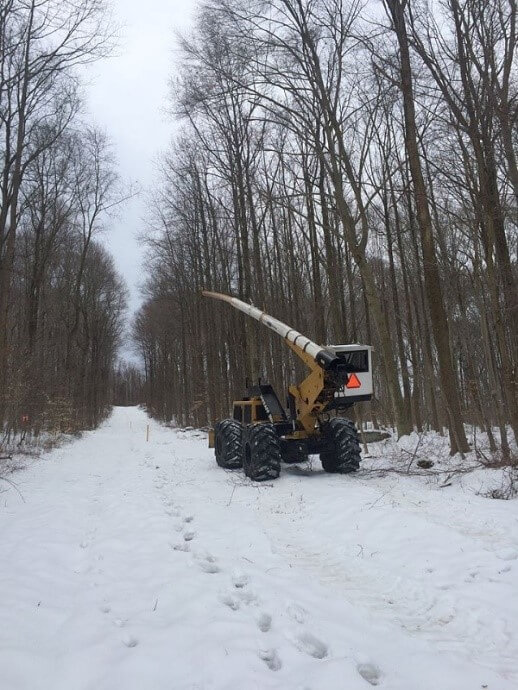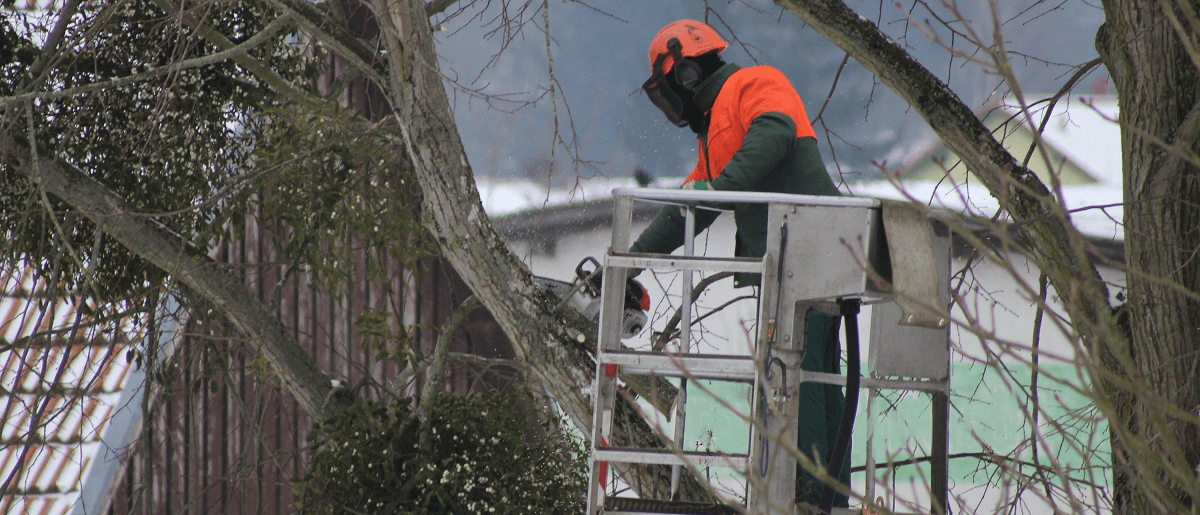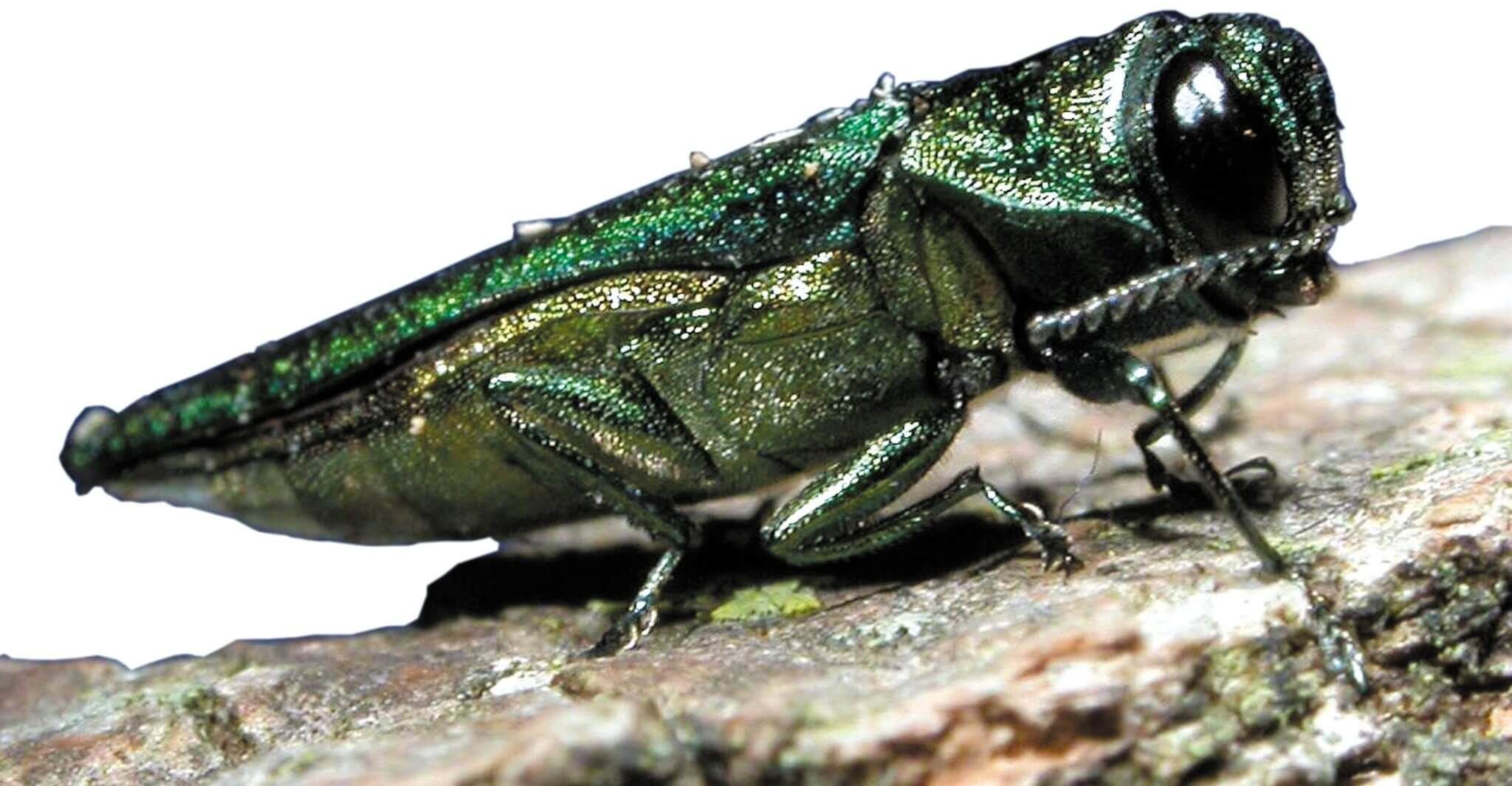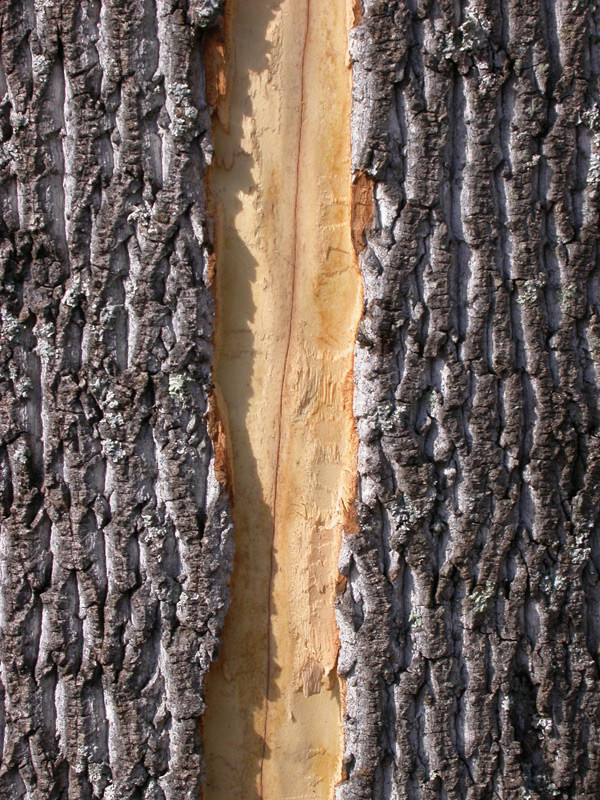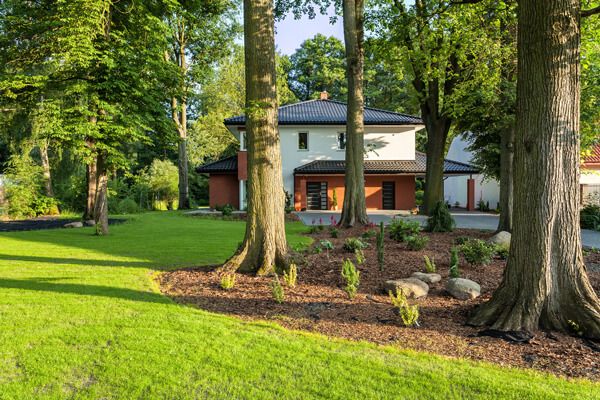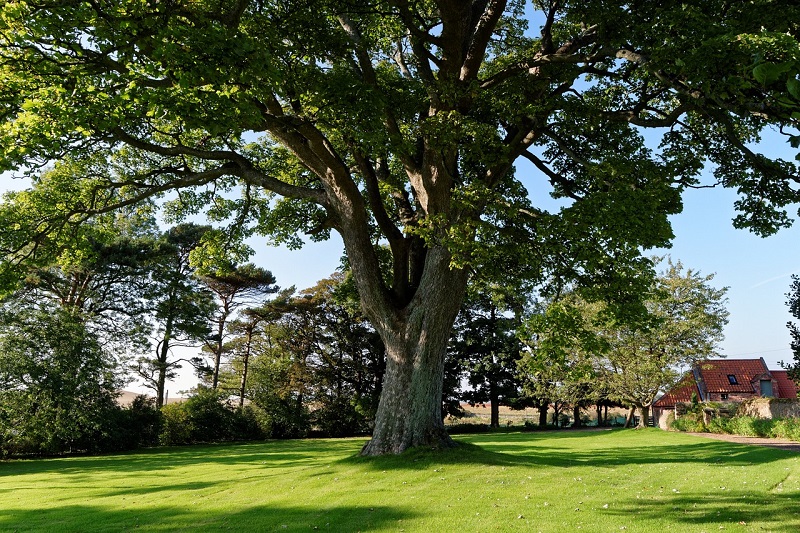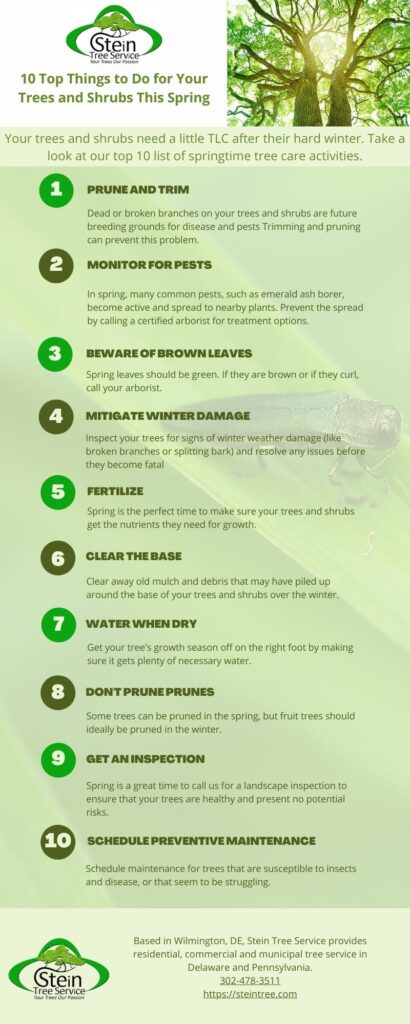The emerald ash borer (EAB, or Agrilus planipennis) is a green beetle native to Asia and Eastern Russia. Outside its native region, the emerald ash borer is an invasive species, and emerald ash borer infestation is highly destructive to ash trees, having infested millions of ash trees in its introduced range. The Emerald Ash Borer was first discovered in the United States in Michigan in 2002. Experts believe the insect was brought to North America unintentionally in ash wood used to stabilize crates during shipping. Stein Tree Service offers helpful information about this invasive pest.
Life Cycle of the Emerald Ash Borer
A key part of emerald ash borer awareness is knowing the emerald ash borer life cycle. Understanding the life cycle will help you understand what to do when you see any activity on or around your property. Below are the different life cycle stages of this highly destructive invasive species.
View Our Tree Care Services
Adults
The adult emerald ash borer is a dark metallic green, bullet-shaped beetle, and about 1/3 inch long (8.5 millimeters), and 1/16 inch wide (1.6 mm). The body is narrow and elongated, and the head is flat with black eyes. After emergence, adults fly into the ash canopy, where they feed on leaves throughout their lives. EAB adults start mating one week after emergence, and females begin laying eggs 2–3 weeks later. A typical female will lay approximately 100 eggs during her 2-month life; 56% of these eggs, on average, will be female. EAB adults are readily observed mating and egg-laying on the trunks of ash trees on warm, sunny afternoons and evenings in the field. The adults of both sexes are strong fliers.
Eggs
A female EAB may lay more than 100 eggs in her lifetime, depositing them individually or in groups on the bark of ash trees along the trunk and portions of the major branches. Eggs are laid in areas where the bark is rough and between bark layers or in bark crevices.
Eggs are approximately 1.0 mm long x 0.6 mm wide and creamy white when laid; fertile eggs gradually turn amber after a few days and hatch after about two weeks.
Larvae
Newly hatched larvae bore through the bark to the phloem and outer layer of new sapwood, where they feed until the weather gets too cold in the fall. There are four stages of larval development (instars). As they feed, the larvae create long serpentine galleries filled with frass, which enlarge in width as they grow.
Larvae are creamy-white and dorso-ventrally flattened. When fully mature, fourth-instar larvae are 26 to 32 mm long. Their head is mainly retracted into the prothorax with only the dark brown mouth parts visible. The prothorax is enlarged, with the mesothorax and metathorax narrower. Larvae have 10 bell-shaped abdominal segments and a pair of small brown structures called urogomphi, which are characteristic of all larvae in the genus Agrilus.
Overwintering Larvae, Pre-pupae, Pupae, and Adults
In the fall, mature fourth-instar emerald ash borer larvae excavate pupal chambers in the sapwood or outer bark where they fold into overwintering “J-shaped larvae.” In the spring, the J-shaped larvae shorten into prepupae then shed their cuticle to become naked pupae. Pupae are initially creamy white, but the eyes turn red, and the bodies begin to darken as they develop.
Another critical aspect of emerald ash borer awareness is identifying signs of infestation. Adults chew D-shaped exit holes through the bark to emerge
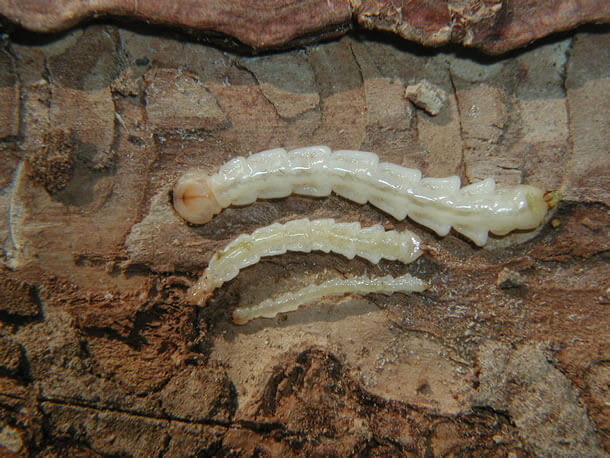
from infested trees and can immediately fly upon emergence. EAB larvae that are immature as cold weather arrives in the fall will overwinter in their larval gallery. Larger larvae complete development the following spring, whereas smaller larvae may require another summer of feeding to complete development.
Symptoms of EAB Infestation
Look for these telltale signs that your ash tree suffers from EAB infestation. To properly identify the presence of this Asian native, look for a combination of two or more symptoms.
- Crown Dieback – as a result of multiple years of EAB infestation, the larvae will disrupt the delivery of nutrients and water flow to the upper canopy, resulting in the dieback of the upper and outer crown.
- Epicormic Sprouting – as a defense mechanism, your trees will try to ensure survival when sick or stressed. Signs of new growth at the tree’s base or on the trunk—often just below where larvae feed- indicate infestation.
- Splitting Bark – feeding EAB larval galleries will develop surrounding callous tissue, causing vertical splits to the bark. One can see these larval galleries when the split bark is pulled away.
- Woodpecker Feeding – woodpeckers love to feed on EAB larvae underneath the bark. With excessive feeding on large numbers of larvae, the damages will look like strips of the tree’s bark have been removed.
- Distinctive D-shaped Exit Holes in Bark – emergence holes are made as the larvae mature into adult beetles and emerge from underneath the bark.
Effect on Trees
The most significant damage to a tree by EAB infestation occurs when the insect is in its larval stage. The larvae feed on the conductive tissue of the tree. This tissue transfers nutrients and water from the roots to the leaves, and when this transfer is disrupted, the infested ash tree begins to die. At the onset of winter, the larvae relocate to the tree’s bark, effectively cutting off the tissue more. This ultimately results in the death of a tree. This can take place over several years, and the first noticeable sign is usually some die back in the crown of the tree. The tree will usually be dead by the following year or soon after. In areas where the insect is invasive and has no natural predators, the emerald ash borer can and usually does have a devastating effect on the local ash tree population.
Treatment
Prevention of the emerald ash borer infestation is possible by injecting a systemic insecticide into the base of the tree. This treatment can prevent damage to the tree for up to two years. Note that arborists must reapply application every two years.
Soil injections are another option for the prevention of EAB. These insecticides are injected directly into the soil surrounding the tree’s base and are then transported through the rest of the tree via the roots. For these treatments to have the greatest effect, the soil must be moist when applied. Waterlogged or dry soils will result in less insecticide being absorbed into the tree.

Arborists can use two insecticide spray treatments:
- The first is a spray applied to the trunk and absorbed through the bark. This treatment is less invasive to the trees and soil. However, absorption is slow and limited if the tree has thick bark.
- The second spray treatment is a protective cover spray applied to the branches and trunk of the tree. This treatment kills adult beetles and newly hatched larvae but will not kill eggs.
Emerald Ash Borer in Winter
While the wintertime cold temperatures kill off many insects and pests, emerald ash borer can survive the freezing winter temperatures. These pests spend the winter preparing to feed on nearby ash trees. EAB survive the winter due to them living within trees and a natural “supercooling” ability.
How does EAB Survive the Winter? Trees
When female emerald ash borer lay their eggs between June and August, the beetles lay eggs between layers of outer bark and cracks and crevices of the trunk and major branches. Once the eggs hatch, the larvae burrow deeper into the tree, feeding on the tree until becoming adults in early spring. The outer bark provides insulation to EAB from the cold weather, so the in-tree temperature is more relevant to EAB’s survival than the temperature outside the tree. Trees that receive much sunlight in the winter can also be warmer despite the cold weather. The other primary reason these beetles can survive cold weather is supercooling.
Supercooling
Supercooling lowers the temperature of gases or liquids below the freezing points without becoming solids. Many animals use supercooling by producing antifreeze proteins that bind to ice crystals, preventing water molecules from binding to the ice crystals and the ice from spreading. Insects can also create these proteins and other sugars or alcohols to prevent themselves from freezing and improve their cold tolerance. Supercooling is common among insects, and that process is the other primary reason why EAB survives the winter.
Emerald ash borer’s supercooling has a limit on how low the temperature can get to be helpful. Most research has shown that a significant portion of larvae begins to die at around -10°F and the number increases with the lower temperature. The icy weather conditions needed to do so are much more common in northern, colder regions such as the Midwest or Canada. Pennsylvania, Delaware, and Maryland winters are unlikely cold enough or may only have short, extreme cold snaps instead.
What You Can Do During Winter
If you want to keep your trees safe from the effects of EAB, here are a few things you can do during the winter while EAB larvae are dormant and have yet to spread to other trees.
- Look for signs of emerald ash borer on your property and among your trees.
- Get your trees inspected by a professional, certified arborist.
- Remove EAB-infested trees and care for surrounding trees to reduce the risk of future infestation.
Removing trees infested with EAB can be done carefully at any time, but the ideal times to remove trees are during the fall and winter. From October to May, EAB is mostly inactive, with the larvae burrowing under the bark of a tree. The dormancy results from the beetles protecting themselves from the cold weather. Because the pest is primarily dormant during the winter, the chances of the pest spreading are reduced. Therefore, the ideal time to remove infested trees is between October and May, with the lowest risk of other ash trees becoming infested.
Emerald ash borer’s supercooling has a limit on how low the temperature can get to be helpful. Most research has shown that a significant portion of larvae begins to die at around -10°F and the number increases with the lower temperature. The icy weather conditions needed to do so are much more common in northern, colder regions such as the Midwest or Canada. Pennsylvania, Delaware, and Maryland winters are unlikely cold enough or may only have short, extreme cold snaps instead.
Camping & Preventing Emerald Ash Borer Spread
If you love camping, be careful about transporting firewood, as that is one of the ways Emerald Ash Borer has spread throughout the United States. First, be aware that improper handling and movement of firewood could cause the spread of invasive pests, such as the emerald ash borer Stein Tree Service warns that the emerald ash borer is dangerous to various ash and olive tree species, and failure to follow handling guidelines could spread the insect to the camping area you visit or to your home trees if you transport wood from the site.
If you plan to have a campfire, and campfires are allowed at your site, purchase wood at the campground. This practice is generally recommended to avoid introducing non-native insects to a site. However, the emerald ash borer is particularly harmful and destructive.

Contact Stein Tree Service for A FREE, No-Obligation Consultation
ITo ensure your property has healthy ash trees from emerald ash borer invasive species, contact Stein Tree Service at (302) 478-3511 to request your free, no-obligation consultation with one of our tree specialists.
REQUEST A FREE, NO OBLIGATION CONSULTATION
Featured Programs
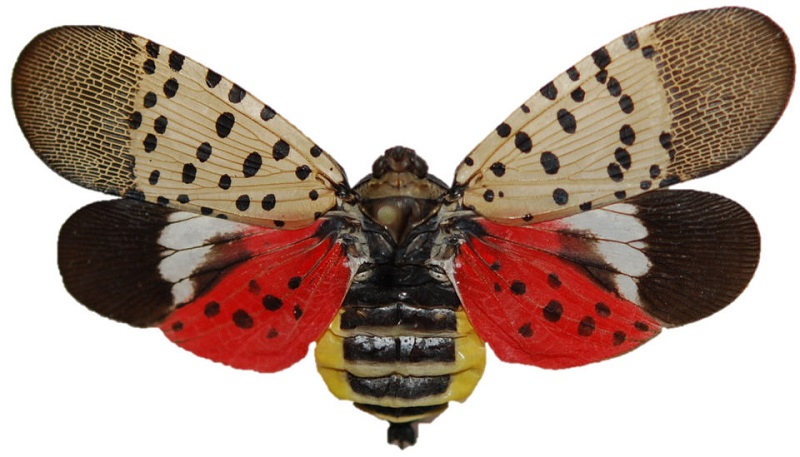
Spotted Lanternfly Quarantine Areas
Stein has a permit to work in spotted lanternfly quarantine areas in Pennsylvania and Delaware. Tree Service Companies have to be trained in proper moving and disposal of materials to avoid spread of the spotted lanternfly and Stein has completed the training courses.
Read more
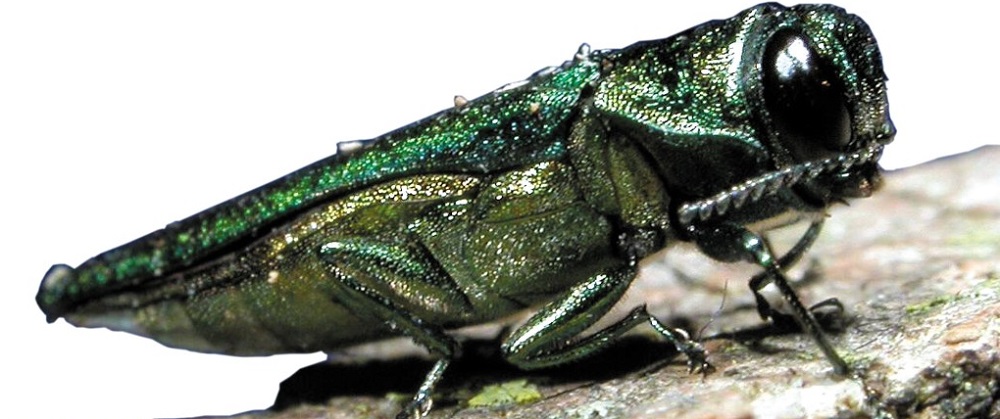
Emerald Ash Borer Inspection
In the spring, destructive ash borer (EAB) adult beetles begin to emerge. These invasive pests can destroy your ash trees. Our specialists are certified to treat for EAB in Pennsylvania and Delaware. For A free consultation, contact us today.
Read more
